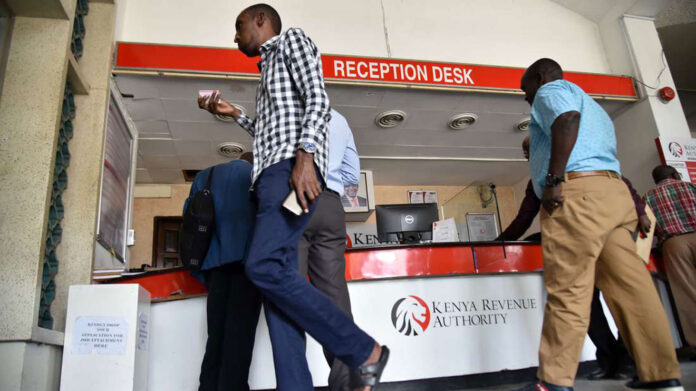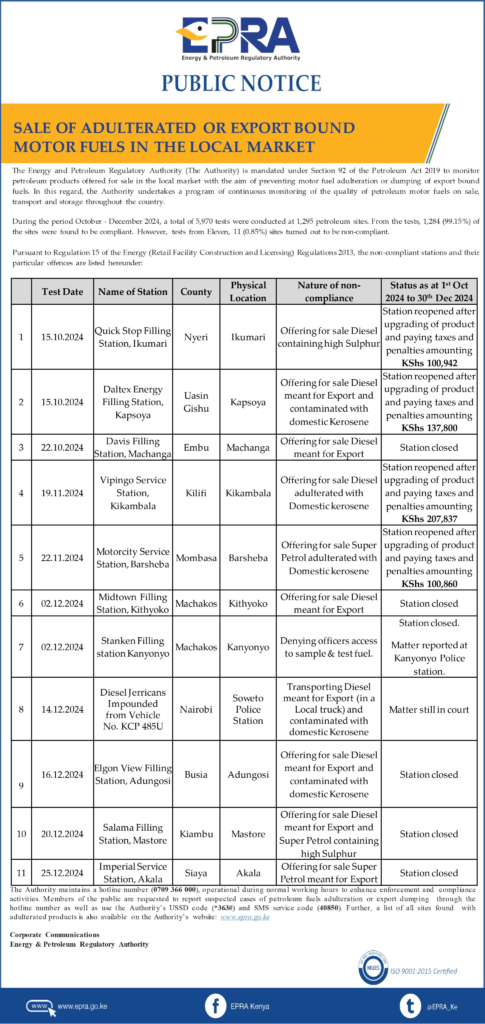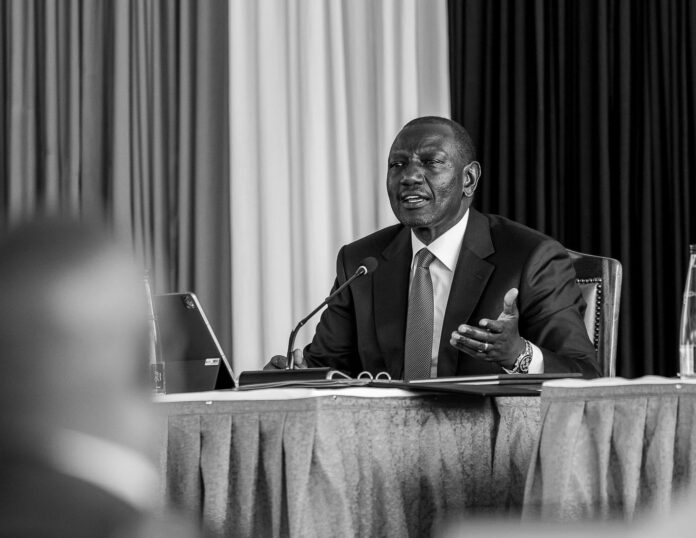Written By Lisa Murimi
Kenyans may have to brace for increased taxes as the Kenya Revenue Authority (KRA) grapples with a significant revenue shortfall.
By November, KRA had collected Sh857 billion, only 34.6% of its Sh2.47 trillion target for the fiscal year, leaving a gap of Sh 174 billion, Treasury data reveals.
To meet its annual goal, the tax authority must now raise Sh1.6 trillion over the next seven months—nearly double what it collected between July and November.
This daunting task is compounded by slowing economic activity and constrained tax revenue streams.
Key tax categories have underperformed, disrupting government operations. By the first quarter, KRA collected Sh590.9 billion, falling short of its Sh605.5 billion target.
The largest gaps were in VAT (Sh15.1 billion), excise duty (Sh5.6 billion), and import duty (Sh2.8 billion).
The weak revenue performance has delayed funding to counties and ministries, affecting essential services, salary payments, and project rollouts.
KRA attributed the challenges to low domestic demand, economic stagnation, and declining import values.
With just seven months remaining, KRA is under immense pressure to close the gap.
Failure to do so could force the government to increase taxes, adding financial strain on Kenyans already grappling with a tough economic environment.



















